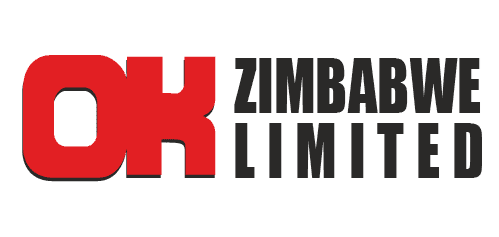External loans to lump $150bn strain on fiscus
TREASURY will from this month add roughly $150 billion to its monthly obligations on the national budget after assuming external loan payment obligations from the Reserve Bank of Zimbabwe (RBZ).
Without an explanation from the Treasury about how this will be funded, questions have been raised on how the obligations will be met without raising or introducing more taxes and further burdening individuals and companies.
This comes after Finance and Economic Development Minister, Professor Mthuli Ncube, earlier last month announced a series of measures to arrest resurgent macroeconomic instability.
Among the new interventions was the decision by the Treasury to transfer all external obligations to the Ministry of Finance, which Mthuli updated this week saying the arrangement will be effective June 1, 2023.
The Treasury said the decision was meant to free the central bank from the obligation to service external Government debts, which fiscal authorities said resulted in money creation outside the national budget.
But many analysts have also cited the Treasury’s decision to use a short-term instrument such as the national budget to fund key infrastructure projects like roads and dams as the other source of “hot money” upsetting the exchange rate and driving inflation.
On its part, the central bank has often been blamed for driving money supply through funds credited to exporters for the surrender portion of their export earnings, as it allegedly does not have a sustainable and non-inflationary source of liquidity, accusations the bank always refuted.
Mthuli announced this week several measures to stabilise the economy, among them transfer of external loans service from RBZ to treasury and reduction of IMTT tax, payment of all duties in local currency (except for luxury goods) and collection of all Government fees, levies and charges in Zimbabwe dollars.
“Treasury will now fund the Zimbabwe dollar component of the 25 percent foreign currency surrendered by exporters in order to eliminate the creation of additional money supply.
“The foreign currency collected from the 25 percent that is surrendered will now be collected by the Treasury and utilised in servicing the foreign currency loans assumed from the Reserve Bank of Zimbabwe,” Mthuli said on Monday.
The Treasury chief said the assumption of the external payments obligations from the central bank and implementation of non-inflationary financing of the liabilities, together with the sourcing of additional resources, would go a long way in reducing money supply. The statement clearly insinuated that or implicated the central bank for driving money supply growth.
While the Treasury has lived its word to assume sovereign debt from the central bank books, as promised in 2021, the latest move is devoid of a clear message on how resources will be mobilised to meet the external payments given the budget is already stretched, much as every other taxpayer, who may struggle to carry new or higher taxes.
The central bank has been spending an estimated US$60 million to service various external loans, including to the African Export and Import Bank (Afreximbank) Germcorp and other foreign creditors.
But some observers have expressed reservations about the Treasury’s capacity and availability of fiscal latitude to fully survive the latest external debt obligations when it has failed to pay off central bank debts assumed in 2021.
Under Finance Act Number 7, of 2021, Treasury assumed over US$2,5 billion worth of debt on the central bank’s books, but there has been very little progress on serving the debts due to limited funds.
Already, the Treasury is battling to reach an agreement with creditors over the arrears clearance and debt resolution of Zimbabwe’s onerous external liabilities amounting to more than US$14 billion owed by the Government.
Sources within the Treasury said the current $4,2 trillion 2023 national budget, of which just over half is already committed to meeting salaries for Government workers and about a quarter earmarked for capital projects, possesses little latitude to cover the newly assumed external obligations.
At roughly US$60 million in external payments monthly, the Treasury, which was already battling to service other foreign obligations, will need to create fiscal space equivalent to a minimum of $150 billion at the current official exchange rate.
“The big question is, do they have the capacity to do that? In all honesty, in its current size, the national budget will be blown, it’s too small and I wonder where they are going to get the money from.
“We have seen similar challenges in countries like the US where the Government ended up facing challenges in terms of spending within its limits. The central bank pays many external obligations the Treasury may struggle to cope with.
“For instance, they pay Afrexim bank over US$25 million a month, multiply that amount by $2 000 and see how much the Treasury will need to fork out every month towards that.
“They pay Germ Corp about US$7 million a month, they pay for blocked funds upwards of US$20 million, they also pay several legacy debts to banks and they also pay outstanding debts for grain imports among others.
“All these obligations and more will now be on the books of Treasury, while this will liberate the central bank in a significant way, it will likely impose a huge and further strain on Treasury’s already squeezed purse,” the source said.
Economist, Tony Hawkins, said the decision by the Ministry of Finance to centralise debt payments in the Treasury flew in the face of recommendations by the International Money Fund and would complicate the efforts to resolve arrears and debt with external creditors.
He also said at average export earnings of US$500 million per month, the Treasury will need to find Zimbabwe equivalent of US$125 million to pay exporters their surrender portion.
While he said the Treasury could find the means to mobilise the resources needed to pay external loans, the coterie of measures announced by Mthuli were just technical interventions to improve a “system that is not working”.
Concerns have been raised that failure by the Treasury to meet the external obligations would create fresh complications for Zimbabwe in terms of access to credit while such a development would see the country suffer severe penalties.
“This will free the central bank from playing these quasi-fiscal activities, therefore Government needs to put the loans on its books, but how much headroom is there,” another source said, adding “ Does it mean people are going to be taxed more and if so, which taxes are they going to increase if people are already complaining of the IMTT tax.”
Efforts to get a comment from Mthuli or Secretary for Finance George Guvamatanga to respond to the issues raised were not successful yesterday.
Some economic analysts, however, said while the Treasury had made the correct move to assume responsibility for paying sovereign debts, what was not clear was how this would be funded.
“The Reserve Bank is not supposed to be incurring obligations or liabilities on behalf of the Government or the country. So what this is, is just fixing a position that was already supposed to be like that.
“It only became like that under (ex-Governor Gideon Gono), but previously the central bank’s functions were to look after financial systems and being a regulator, so its mandate is not to incur debt because it has no capacity to repay.
“So, debt should be incurred by the Government through the ministry of finance and then the Reserve Bank just acts as the banker to the Government,” an investment advisor and business consultant said.
Economist, Eddie Cross, noted efforts had been made to address some of the key issues responsible for volatility and distortions characterising the domestic economy.
“The parallel market firmed a bit today; that is the first firming that we have seen (in a long time), but I think we gotta wait and see what the market does tomorrow and the next day.
“I think the market has to make a decision, my personal feeling is that it is a mixed bag, but I have my misgivings about it being effective. We need to stop the Reserve Bank from printing money. There are some measures towards that, but it’s not entirely clear.
“We also now need a (proper) market for foreign exchange; the interbank must become the main market for foreign exchange and must be totally free; it must be without any Government intervention,” Cross said.
He stressed that if authorities want to save the Zimbabwe dollar from collapse, they should continue to implement measures that make the local currency important in trading.
“The Government’s gotta start with its own income; they gotta start collecting all the taxes in local currency; I think they have made a step about it but I do not think they did enough,” Cross added.
-ebusinessweekly










